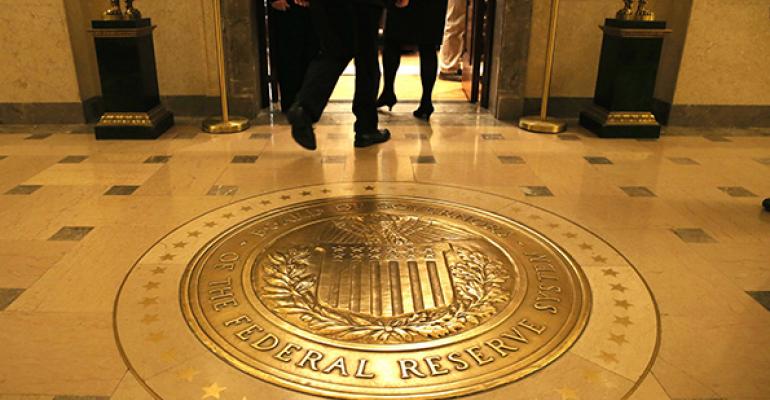In two weeks, the FOMC will meet for the final time in 2015. At its last couple meetings, the Fed defied many investors’ expectations by holding off on its first interest-rate hike since 2006, mainly citing global financial developments. Will this time be different?
The market seems to think so: As of November 30, 2015, the market was factoring in a 74% probability of a rate increase in December. For our part, we think the odds may actually be greater than that. A close look at the recent Fed minutes makes it clear that the Fed wants to begin liftoff sooner rather than later, and the economic data supports moving in that direction. While the data has been somewhat choppy lately, note that:
- The last reported jobs number was quite encouraging, and the labor market overall continues to be strong. A labor market this strong is certainly not consistent with near-zero short-term interest rates.
- While inflation is below the Fed’s target right now, the Fed is “reasonably confident” that it will reach the target. Additionally, some of the base effects from oil’s sharp decline in late 2014 may begin to roll off and make inflation prints somewhat higher in 2016.
To be sure, a December rate hike is not a done deal, and there are still plenty of skeptics who believe the Fed will wait until the first half of 2016 or even later. That being said, we think the bar for what could dissuade the Fed from hiking in a couple weeks is set pretty high.
In our view, it would have to be something really bad or unexpected – for example, a sharp downturn in the incoming economic data or a major selloff in global financial markets. Unpredictable events like the recent terrorist attacks in Paris are certainly tragic and significant from a geopolitical perspective, but from the Fed’s standpoint regarding rates, it’s mostly about the U.S. economy and the markets in terms of how they feed through to the economy.
Bottom line: The first rate hike in nearly a decade is coming, with more likely to follow. We think the markets may be volatile in the period ahead, whether due to the Fed, China, geopolitical issues or some combination thereof. In this type of environment, we continue to believe that many investors may benefit from having a flexible income strategy that can take both long and short positions in countries around the world.
Eric Stein is vice president and co-director of global income at Eaton Vance Management. Additional insights regarding income, volatility, and taxes can be found on the Eaton Vance Advisory blog.





